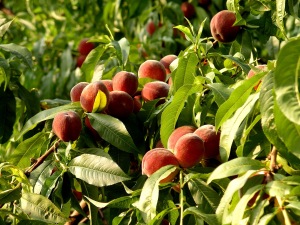We've all heard about the benefits of eating organic, "green" food, but less people realize the importance of eating locally-produced fare. Economically and environmentally, supporting local businesses remains important.
Buying from neighboring companies not only reduces pollution outputs, but it
also strengthens the merchants in your area. And with farmland rapidly disappearing all across America, the importance of supporting small farmers, growers, and
artisans has never been greater.
Although consuming enough fresh food often poses a challenge for students, a lot of wholesome local food is within easy access in the SPU campus and its surrounding boroughs. One of the benefits of living in the Seattle is this abundance of great places to buy locally-grown produce year-round, and I encourage students to take advantage of it.
March is the peak season for great foods like cauliflower, carrots, cabbages, artichokes, and oranges. And with spring just beginning, more tasty edibles are sure to follow. Even if you don’t care for “rabbit food,” nearby vendors still offer other delicious foodstuffs like bread, cheese, soda, grains, honey and nuts.
Eating locally also gives one a whole catch of health benefits. Food
that travels less retains more of its nutrients and reduces the chance of bacterial contamination. And with E. coli and salmonella outbreaks becoming more common, knowing the exact county your produce comes from will give you more peace of
mind (unless the outbreak has reached that area, in which case contact your
produce provider right away). If nothing else, attempting to eat local food offers
a great way to add variety to your diet.
The most exciting way to support local growers is to visit the nearby
markets, which usually overflow with delicious Seattle-based food. Ballard and Fremont have their weekly Sunday
markets year-round, and Queen Anne hosts a
seasonal farmer’s market that is starting up again June 6. The
Madrona Farmers Market on Martin Luther King Jr. Way and Union St. also
begins its run May 18. And
of course Pike Place Market offers an
exciting, interactive place buy regional products while sampling Honeycrisp
apples, Marketspice tea, and chocolate pasta. Once July rolls around, look for
the “Oh My God” peaches; they are the best that I have ever tasted, and grown
within 30 miles of their stall.
Another easy way to support local growers is by shopping at
grocery stores that purchase their supplies from local farms and vendors. Luckily, Seattle
contains many such stores: Whole Foods, PCC, the Metropolitan Market. Though these can get a bit pricier than other grocery outlets,
they come with a strong history of supporting local merchants with ethical
practices.
Other small Seattle-based food companies offer tasty
fare as well. These include Macrina Bakery, The Essential Baking Company, and
Theo Chocolates – all of which are within walking distance of SPU.
If you don’t have time for shopping, there are even organic
organizations that deliver fresh, seasonal produce to your doorstep.
To learn more about your options for eating locally, click here for a
comprehensive list of nearby markets, farms, and delivery companies.
 It’s now mid-spring, which means the season’s fruits and vegetables are finally in! Mid-May and early June are the peak season for wonderful produce like strawberries, asparagus, kale, and the first watermelons and peaches. But these foods can be fragile, and often spoil mere days after purchase.
It’s now mid-spring, which means the season’s fruits and vegetables are finally in! Mid-May and early June are the peak season for wonderful produce like strawberries, asparagus, kale, and the first watermelons and peaches. But these foods can be fragile, and often spoil mere days after purchase.









